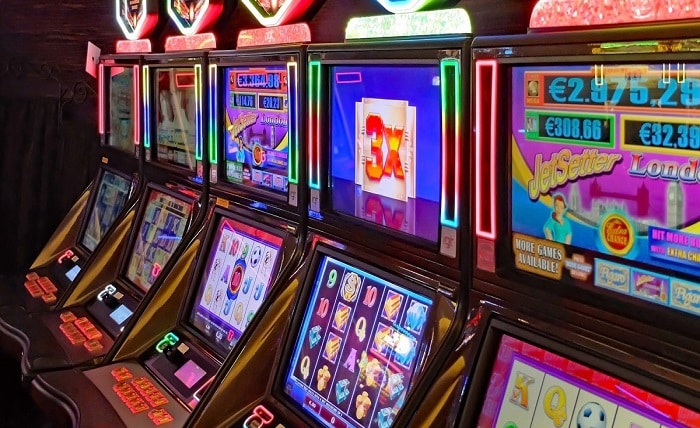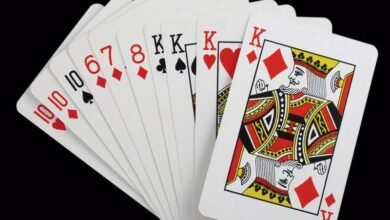Behind the Glimmer of Slot Machines: The Social Impact of Gambling in Haitian Communities

In the vibrant yet vulnerable nation of Haiti, where daily life is often marked by economic hardship, political instability, and limited access to essential services, a growing but less visible issue is taking root—gambling, particularly through slot machines. Though often perceived as a form of entertainment or even a potential escape from poverty, the rise of slot gambling in Haitian communities is revealing profound and unsettling social consequences.
This article explores the rise of machines in Haiti, their appeal among low-income populations, and the significant toll they are taking on individuals, families, and the broader community.
Slot Machines: A Shiny Escape from Harsh Realities
In recent years, small slot parlors have begun appearing in neighborhoods across Port-au-Prince and other urban centers in Haiti. These venues are often modest—converted storefronts or dimly lit back rooms—but they are equipped with flashy, imported slot machines that mimic the glitz of casinos in Las Vegas or Macau.
For many Haitians struggling to make ends meet, the slot machine offers a momentary slot gacor hari ini escape. With just a few gourdes, a person can spin the reels and hope for a payout. It’s this promise of fast, effortless money that makes the machines so alluring—particularly in a country where opportunities for advancement are limited and the daily grind is unforgiving.
The Rise of Gambling in an Unregulated Environment
Gambling in Haiti remains a largely unregulated sector. While some gambling operations are technically illegal or operate in legal gray areas, enforcement is inconsistent. Corruption and weak institutions often prevent meaningful oversight, allowing the gambling market to expand unchecked.
Slot machines are among the most accessible forms of gambling. Unlike sports betting or card games, slots require no skill, no knowledge of odds, and no community interaction. Anyone—young or old, educated or not—can walk into a parlor and start playing. This accessibility, combined with a lack of regulation, has led to widespread and often hidden forms of addiction.
Who Plays—and Who Pays the Price
Slot machines in Haiti disproportionately attract the most economically vulnerable: low-income workers, unemployed youth, street vendors, and even single parents. For these individuals, gambling can feel like the only chance to change their financial circumstances.
Unfortunately, the odds are overwhelmingly against them.
Many players fall into a cycle of loss, chasing the thrill of a win that rarely comes. In a society with limited social safety nets, the financial losses caused by gambling can be devastating. Individuals may skip meals, neglect school fees, or delay medical care to fund their gambling habit. Families suffer, marriages deteriorate, and children are left without support.
Women and Gambling: A Silent Struggle
While gambling is often portrayed as a male-dominated activity, in Haiti, more and more women—particularly single mothers and widows—are participating in slot gambling. For some, it’s a form of stress relief; for others, it’s a desperate attempt to cover rising living costs.
However, the stigma surrounding gambling for women is particularly harsh. Female gamblers often hide their addiction, making it more difficult for them to access help or speak openly about their struggles. This silence can lead to increased emotional distress and a deeper entrenchment in harmful behaviors.
The Ripple Effect on Communities
The impact of gambling in Haitian communities extends far beyond individual losses. It creates a culture of false hope and economic stagnation. Instead of investing in education, local businesses, or long-term solutions, people pour their limited resources into machines designed to take more than they give.
Local economies suffer when money that could support small markets or services is funneled into slot parlors. In some areas, crime has risen in conjunction with increased gambling activity, including theft, fraud, and domestic violence.
Additionally, children growing up in households affected by gambling are more likely to face neglect, school absenteeism, and emotional trauma.
Addressing the Problem: A Call for Awareness and Regulation
So far, few efforts have been made at a national level to address gambling addiction in Haiti. The country lacks dedicated rehabilitation programs, public education campaigns, or hotlines to support problem gamblers. Without institutional support, community-based solutions are urgently needed.
Religious groups, NGOs, and grassroots organizations could play a vital role in raising awareness, offering counseling, and advocating for policy change. Schools and community centers must also become safe spaces for dialogue, prevention, and youth engagement.
Government intervention is equally crucial. A formal regulatory framework, licensing for gambling establishments, and strict age restrictions could help control the spread of slot machines and protect vulnerable populations.
A Broader Conversation: Entertainment or Exploitation?
At its core, the conversation about slot bet 200 machines in Haiti is about more than just gambling. It raises critical questions about inequality, desperation, and social responsibility. Is it ethical to allow addictive machines to thrive in communities already struggling to survive? Can entertainment be justified when it profits from the pain of the poor?
Slot machines in Haiti are not just symbols of misplaced hope—they are reflections of a society in need of healing, investment, and dignity.
Conclusion
Behind the flashing lights and spinning reels of Haiti’s slot machines lies a darker truth. What promises moments of fun or financial breakthrough often ends in hardship and broken dreams. As the machines multiply, so do the stories of loss, addiction, and fractured families.
If Haiti is to rise from its challenges, it must confront not only its political and economic crises but also the subtle, corrosive forces like gambling that are weakening its social fabric. Only through awareness, compassion, and concrete action can the nation ensure that entertainment never comes at the cost of its people’s well-being.





